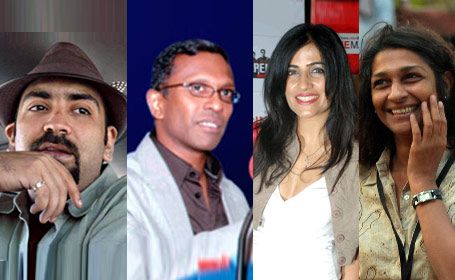
MUMBAI: Indie music made its presence felt significantly in 2012. The year witnessed a slew of festivals promoting indie acts and there was a corresponding rise in media attention, while even Bollywood continued its interest in relatively ‘new’ sounds and artists.
The indie music genre- both English and Hindi- is a generic term for music that does not belong to the Bollywood music category which dominates the Indian music industry. As 2012 ends and a new year begins,Radioandmusic.com talks to industry professionals across the board on their experiences and forecasts for India’s indie artists and their music.
For Sony Music India and Middle East president Shridhar Subramaniam, 2012 was the year when indie music started showing signs of maturity with tremendous growth in the number of festivals, venues, promoters and most importantly in talented new artists, bands and sounds.
“There is tremendous diversity in sounds and there are a number of exciting new artists who are breaking new ground. Artists today are more collaborative and fans are constantly on the lookout for new bands and sounds. It is a great time to be an artist.”
Sony Music’s indie platform ‘Live From The Console’ (LFTC) had also come of age attracting record artists and fans.
“The entire idea (of Live From The Console) was to set up an alternate venue where people would come just for no frills, uncluttered and affordable music for real fans. LFTC has grown in a nice organic manner where people have witnessed different genres of music ranging from Pop to alternate Rock and Electro Fusion to cabaret.”
The LFTC – Goa Edition in its first outing- had an eclectic music like The Indie, Dub and Reggae. It attracted over 3500 fans and plans are now afoot to roll the LFTC to a few more cities by mid 2013 and return with a yearend festival back in Goa.
On the business front, there has been an increase in the number of labels, promoters and Artists & Repertoire (A & R) tying up with indie acts not just for the Indian but overseas market.This has enabled the artists and their music more exposure and visibility among audiences.
However it is first important to define indie music which in India, includes folk, Indian Classical and (even) Jazz,
“The past year has been amazing in many ways with indie music gaining traction. The important thing is to enable artists to connect with media through the media. What we need to address for the future are things like lack of infrastructure. As a label (EarthSync) we had looked for worldwide distribution for our artists, leveraged the digital platform and looked for performance opportunities. We will exploit the digital platform with products like iTunes,” Chennai based indie label EarthSync director Sonya Mazumdar said.
Bollywood’s interest in indie music has also happened opening even more opportunities for indie artists to expand their repertoire.
“These are interesting times and I feel mainstream cinema and indie music will converge in the future with producers who have courage to step out of making formula films, a process that has already begun. What we need is critical mass of indie artists, more platforms for performance and exposure that will drive and grow the industry. Exposure is very important for artistic growth,” Mazumdar said.
Shibani Kashyap (indie artist and Bollywood playback singer) agreed, “The indie scene is looking up and response has been good. But we still have a long way to go. The fact is indie music (English or Hindi) always had public support but not of the media’s. Bollywood has opened to the innovation and experimentation but is still guarded. It’s only when an artist becomes a hit or has gone viral like Honey Singh that an artist gets signed. Nobody bets on an unknown artist.”
Anticipating growth and exposure, 2012 also witnessed a major international meet on indie music at Chennai that focussed heavily on India’s indie scene. The three day ‘IndiEarth Xchange 2012’, attended by label representatives, promoters, A & R professionals held a series of think tank sessions on independent music, films and artists from India and across the globe.
“For the indie scene to truly develop, the whole eco system needs to work together. We currently have reasonably well developed and developing live platforms. We need to grow this in many cities and not just restrict it to the few large ones,” Subramaniam said.
The one vertical which undeniably grew exponentially last year was the music festivals dominated by indie artists. Leaving aside festivals and concerts in the Classical Indian and Western categories, Jazz and Ghazal, 2012 saw a spat of festivals- NH7, Sunburn, India Music Week, Hornbill, Submerge to numerous club gigs featuring both international and local talent. Most of these fests had slots for upcoming new acts to showcase their talents.
According to a media expert, over 8 lakh people have attended live shows in 2012, the total live event industry is expected to be worth approximately $10 billion, the potential for any genre- indie included- is huge for both artists and promoters. 2013 promises to be even better.
“Indie music is no longer niche. It has brand managers, a large audience and fairly robust fans who are willing to spend for the music. There has been an increase in the number of bands and their quality has generally been very good, “Only Much Louder (OML) band manager and NH7 festival director Dhruv Jagasia said.